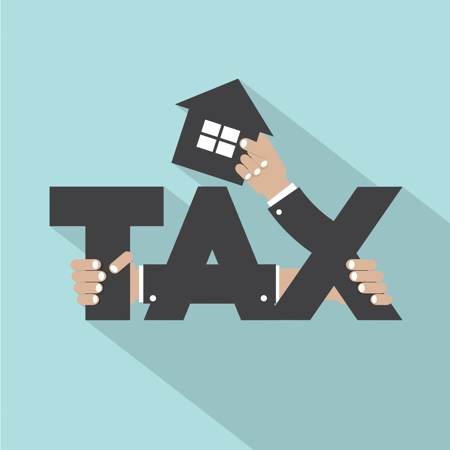Are you planning for your next generation of customers?
 As Baby Boomers and Generation X approach retirement, Millennials and Generation Z are fast becoming the new demographic segments for businesses to court. Gen Zers, now entering teenage and young adulthood, in particular are set to dominate when it comes to purchasing power in the upcoming decades.
As Baby Boomers and Generation X approach retirement, Millennials and Generation Z are fast becoming the new demographic segments for businesses to court. Gen Zers, now entering teenage and young adulthood, in particular are set to dominate when it comes to purchasing power in the upcoming decades.
The new generations differ markedly in their consuming habits from their predecessors both in motivation and methods. For small businesses that want to court this new generation of clients, it is vital to plan ahead and adapt your marketing to stay relevant. As business growth specialists, Tax Agility can show you how to cater your business to the most influential generation of our time.
Marketing to the ‘Digital Native’
Born from the early 1980s and mid-1990s respectively, Millennials and Generation Z are defined by their affinity to digital technology. As pioneers and natives in an age of computers and the Internet, these are consumers who understand advertising very differently from the preceding Boomers and Gen Xers. The advancements in computing and mobile technology have only widened this divide.
Most businesses today have some kind of online presence in the form of a website or corporate accounts on social media platforms, but unless they take into consideration the Internet habits of Gen Z, they may not be getting through to the notoriously elusive demographic. This is a group that is most comfortable doing everything on their phones. However, studies also show that many of them dislike intrusive online ads.
The most successful advertising campaigns that have worked in the internet age generally share two characteristics: shareability and individual-ness. This has given rise to the social media ‘influencer’: these are thought-leaders in lifestyle, fashion and other fields who deliver personalised information about products to their followers. This is one reason that social media advertising has become so popular – hashtags allow users to find and follow trends and attributes that interest them. If you’ve heard of the term ‘viral marketing’ you’ll realise that it often describes the dissemination of hidden adverts such as this.
It’s worth looking at your small business’s current advertising strategy and evaluate whether they meet these criteria – if they don’t, you’re likely missing out on a lot of awareness and potential sales.
Keeping Up with the Digital Joneses
Many modern advertising strategies are constructed around the tried-and-tested method of pitching the product. This was the style that worked with the earlier Baby Boomer generation, and it is a strategy that is dwindling in appeal along with its intended audience. An advertising strategy that engages the new generation has to be conceived from the ground up – you cannot simply repurpose your existing ad campaign for the internet and expect it to go viral.
Consider your story and the identity of your company. You’re looking to build a personality, to tell a story about your small business, and once you’ve planned your journey, you can begin to form a marketing strategy around telling it. Remember the key factors of shareability and individual-ness, they may not be absolute rules, but you will do well to bear them in mind when advertising to your customer base. Consider whether your advert could pass as a piece of content – if it looks like an advert at the outset, then there’s a good chance for it to be blocked or skipped.
Look for professional help
While Gen Z is gearing up to be the most profitable target demographic, it’s also proving the hardest to reach. As specialist small business accountants, we at Tax Agility have plenty of experience in helping new businesses connect with Millennial and Gen Z customers, and we can help you form a plan that will future-proof your business for years to come.
To find out more, get in touch on 020 8108 0090 or fill out our Online Form.
If you found this article useful, you might want to take a look at:
This post is intended to provide information of general interest about current business/ accounting issues. It should not replace professional advice tailored to your specific circumstances.
Property Tax
 Tax is a complicated subject and property tax is no exception. If you own a property or planning to own one, tax planning becomes important because buying, selling or renting out your property is likely to expose you to some form of property tax. In this article, our specialist tax accountants explain:
Tax is a complicated subject and property tax is no exception. If you own a property or planning to own one, tax planning becomes important because buying, selling or renting out your property is likely to expose you to some form of property tax. In this article, our specialist tax accountants explain:
- Stamp Duty Land Tax
- Capital Gain Tax
- Tax on rental income
Stamp Duty Land Tax
When you buy property, you must pay Stamp Duty Land Tax (SDLT). The amount you pay depends on several factors such as if you’re replacing your main residence, buying an additional property, buying a non-residential property, and if the property is freehold or leasehold.
If you are a first-time buyer, then you don’t pay SDLT on properties up to £300,000, and only 5% SDLT on anything between £300,001 and £500,000. If your property is worth more than £500,000 then you will be taxed as though you had already bought a home.
A common question relating to SDLT is if one can reduce the SDLT liability by using a company to purchase a property. The answer is generally no because HMRC applies a 15% SDLT on residential properties costing more than £500,000 if bought by a company, although there are conditions where the 15% rate does not apply, such as when the company acts in its capacity as a trustee of a settlement and purchases a chargeable interest in a residential property. To find out how you can reduce your SDLT liability legitimately, it’s best to discuss your situation with one of our experienced Tax Accountants.
Capital gains tax on property
Whenever you sell a property that has appreciated in value, you may be taxed on the profit that you make. This is capital gains tax and it typically applies to property that’s not your main home, such as buy-to-let property, business premise, land and inherited property. If you sell your home or if you live abroad, different rules will apply.
Like other taxes, there are situations where you can get a tax relief or don’t have to pay capital gain tax on property. For example, you do not need to pay tax on assets you give to your spouse or a charity as a gift.
In the event that you are liable for capital gains tax, how much you need to pay depends on how much capital gains tax allowance you have in that financial year. The good news is, the amount of annual capital gains tax allowance, aka the annual CGT exemption, has been increased by the government over the years and for the 2019/2020 tax year, you can make tax-free capital gains of up to £12,000 and couples who jointly own assets can combine this allowance.
Get in touch with us if you would like to understand more about capital gains tax and the relief associated with it.
Tax on rental income
In its simplest sense, you pay income tax on the profit you make from renting out your property. Additionally, you can also deduct finance cost (mortgage interest, interest on loans to buy furnishings, overdrafts) from rental income, but HMRC has begun to restrict this from 2017 with a mixture of old and new rules and from the tax year 2020-2021 onwards, as a residential landlord, you will get a flat rate of 20% deduction of these costs from your tax liability. The upshot of this is you will be paying more tax and receiving a smaller net profit from your rental income, particularly if you’re a landlord who already has a higher income.
One legitimate tax-efficient way to handle tax on rental income is to set-up a limited company and take advantage of corporation tax rates and dividend tax rates, which are lower than income tax and capital gains tax rates.
Contact the experts
Property tax is immensely complicated and there are numerous reliefs subject to specific conditions which may not be obvious to a property owner. At Tax Agility, our tax accountants excel in personal tax planning, and we’re always available to discuss income tax, trusts and estates, inheritance tax and capital gains tax with you.
Get in touch on 020 8108 0090, or contact us via our Online Form.
This post is intended to provide information of general interest about current business/ accounting issues. It should not replace professional advice tailored to your specific circumstances.
